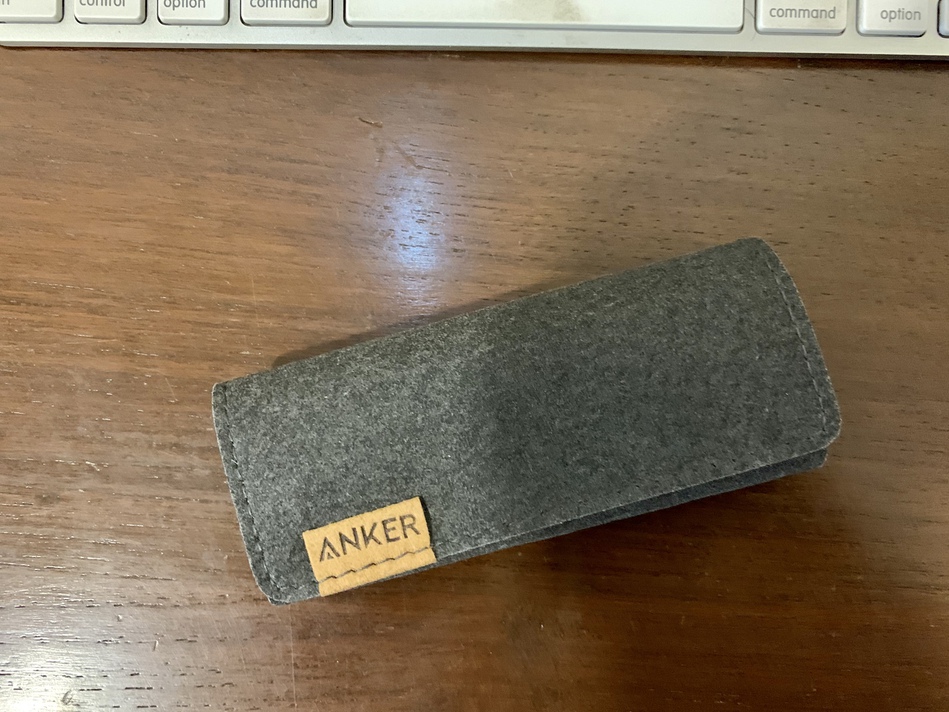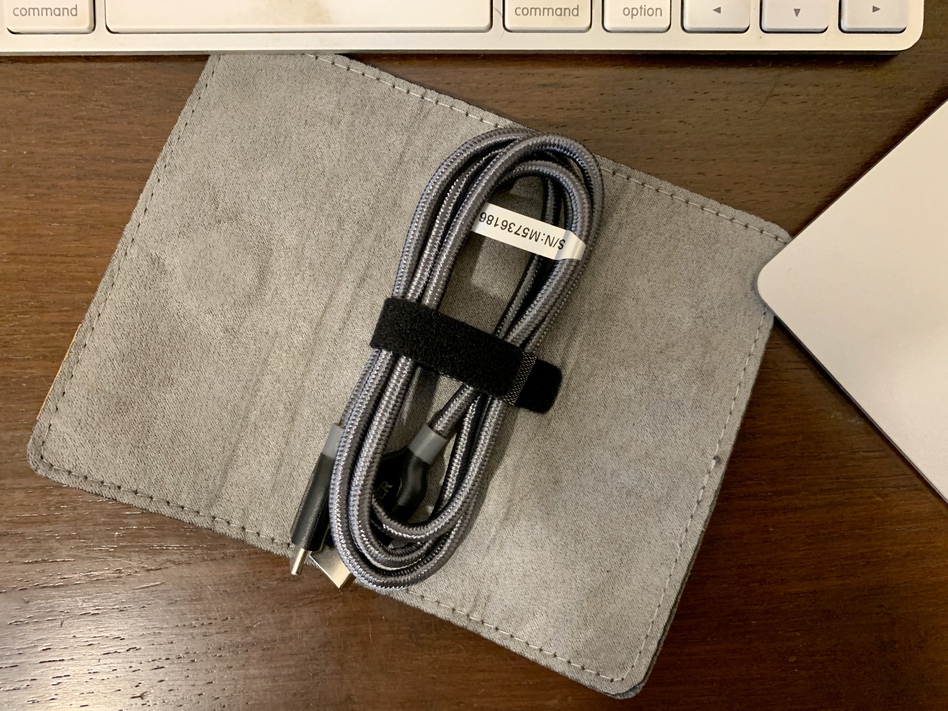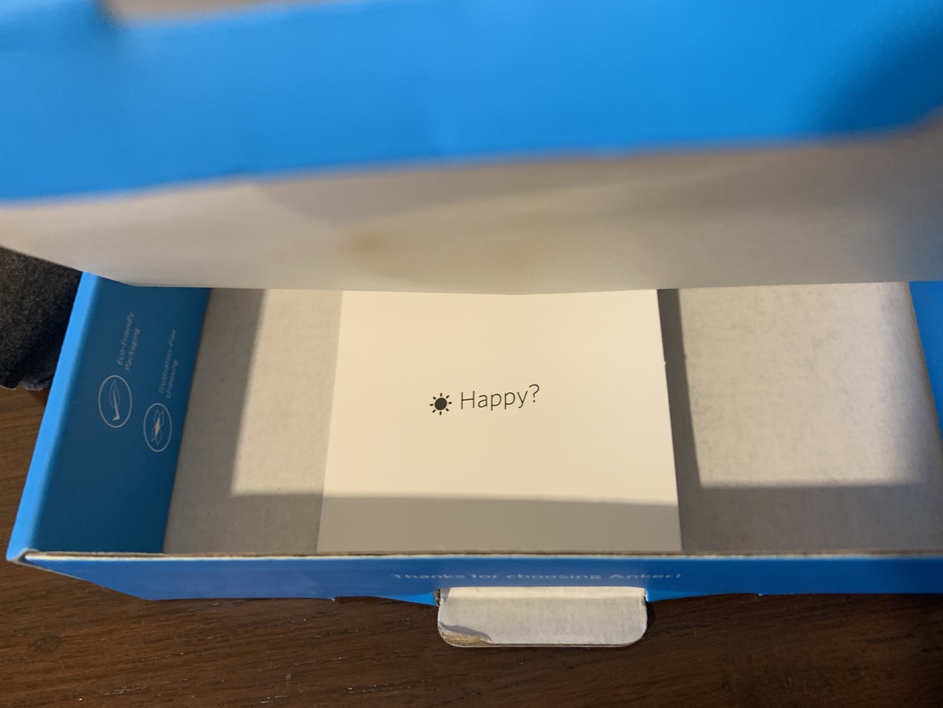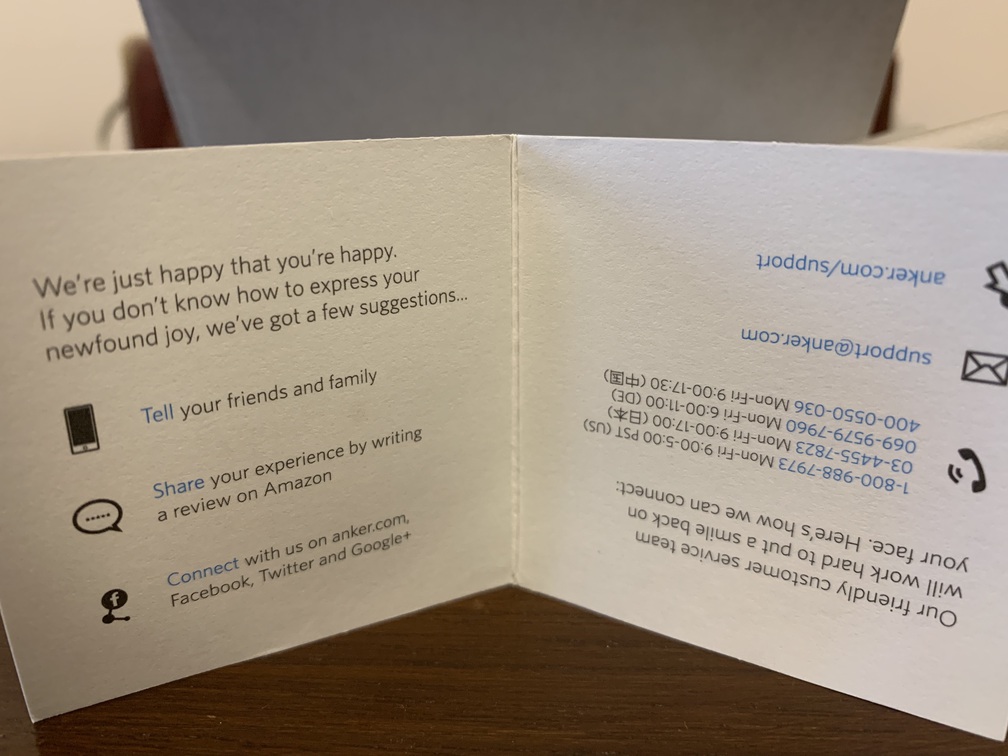I ordered a USB-C to USB-A braided cable, and it arrived today. I picked Anker despite it costing a little more than twice as much as the equivalent AmazonBasics cable because it – Anker – has a reputation for good quality products.
I wasn’t prepared for just how good.
The cable comes in a small suede pouch that not only has a velro loop to keep the cable in place but also a tiny magnet stitched within to keep the pouch shut:
The packaging itself makes multiple references to customer support, encouraging you to get in touch with them if you have a problem. The tiny card has ‘Happy?’ and ‘Not Happy’ halves.
The pouch has made sure that this cable is always going to be the one I toss into my bag among other USB-C ➝ USB A cables. And when it comes to buying future cables, there’s a good chance I’m going to spring for the one that encourages me and makes it easy to contact it there’s ever a problem.
More broadly, the whole package is a powerful example of signalling of value. It’s a commodity market – we’re talking cables here. But the message I receive loud and clear is that this is a company that cares about quality and stands behind it, that anything I buy from it will be long-lasting and won’t harm my devices.
The cable costs Anker more to make than the other cheaper cables do. And by adding just a little extra to those costs through the pouch and the paper card, the company’s able to set itself far apart from the alternatives, potentially charging a much higher markup than its competitors while also building loyalty.
After all, it’s a cable today; it’ll be other higher-priced products tomorrow.





